7 Best Exotic Pets to Own This Year, Say Animal Experts

Exotic pets can be a lot of fun, but make sure to do your research first. “It is important to obtain an exotic pet legally and directly from a reputable rescue center, breeder, or supplier,” says the World Wildlife Foundation. “They should be able to show where their animals come from and follow best practices for the species they sell, including making sure they only sell live exotic pets to people who know how to care for them.” Remember to check the laws in your state if you’re thinking about getting one of the following 7 exotic pets.
RELATED: 10 Dog Breeds That Bark the Most, According to Veterinarians.
1
Axolotls
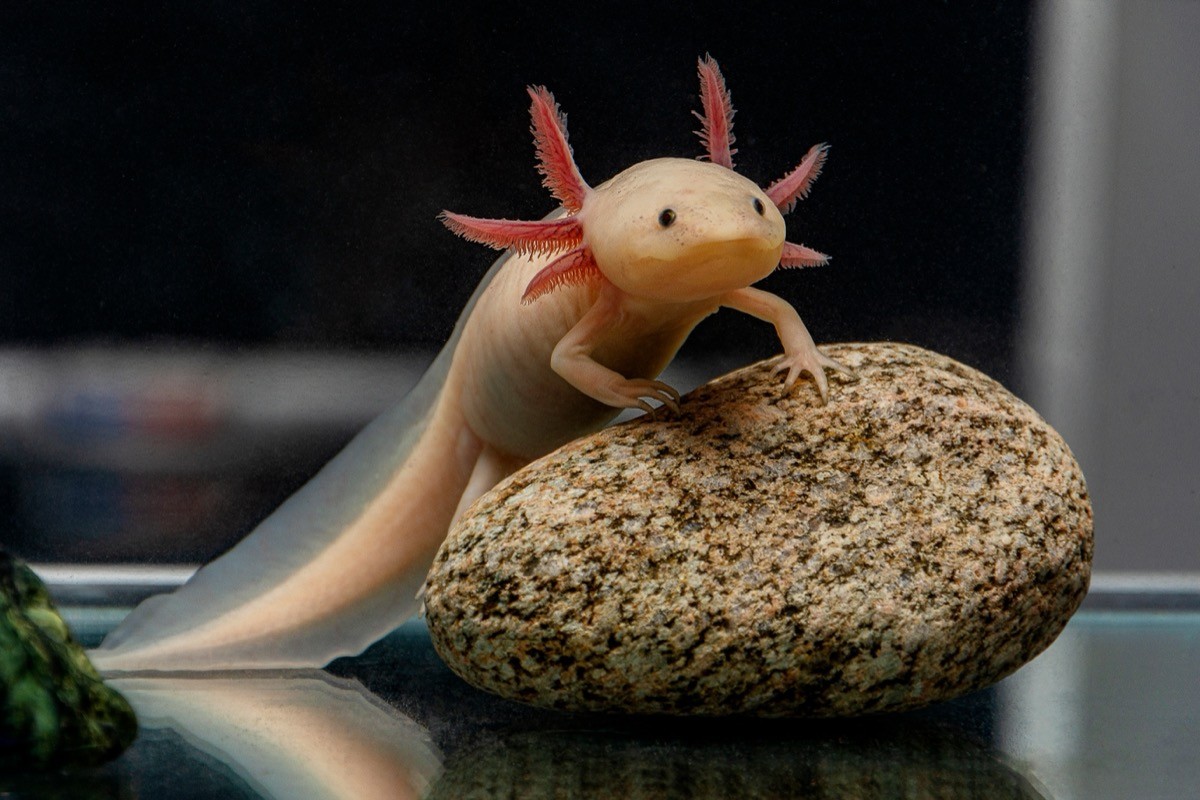
Ok admit it—these are the cutest animals you’ve ever seen in your life. “For those who prefer aquatic and/or more hands-off pets, one of our favorite unusual pets is the Axolotl,” says Burlington Emergency & Veterinary Specialists. “Axolotls range from 6-18 inches in size and are characterized by a wide head with lidless eyes and long ‘feathery’ external gills on each side of the neck giving them quite an unusual appearance. Due to the location of their eyes and mouth, they often look like they are smiling!”
2
Ferrets

Ferrets are another great choice for an unusual pet. “Ferrets are very playful, quiet pets that will spend most of their day sleeping while you are gone,” says Legacy Animal Medical Center. “They also require a large cage, so they have enough space to play in. You also need to be careful of their mischievous nature. Ensure your home is ferret-proof by making sure it can’t escape and by blocking off potential hazardous hiding spots, such as the oven. You may require a permit to own one in your state.”
3
Chinchilla
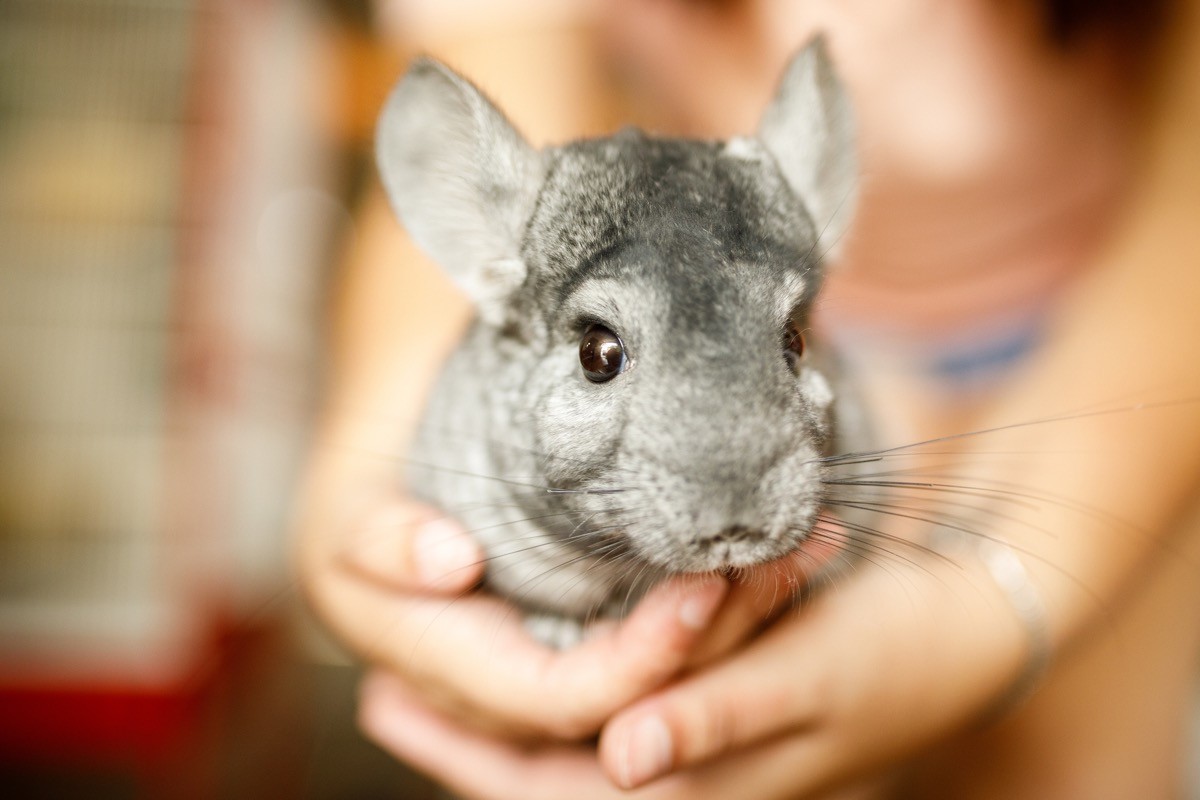
If you’re more of a hands-off pet owner, consider a chinchilla. “Chinchillas are clean, quiet and attractive rodents that don’t smell. They can live for 10–20 years, so are a long-term commitment for any owner,” says the RSPCA. “They’re quite shy, flighty and don’t enjoy being stroked or handled. Because of this they’re more appropriate for adults than children, and also best for owners who enjoy watching animals instead of handling them.”
4
Bearded Dragons
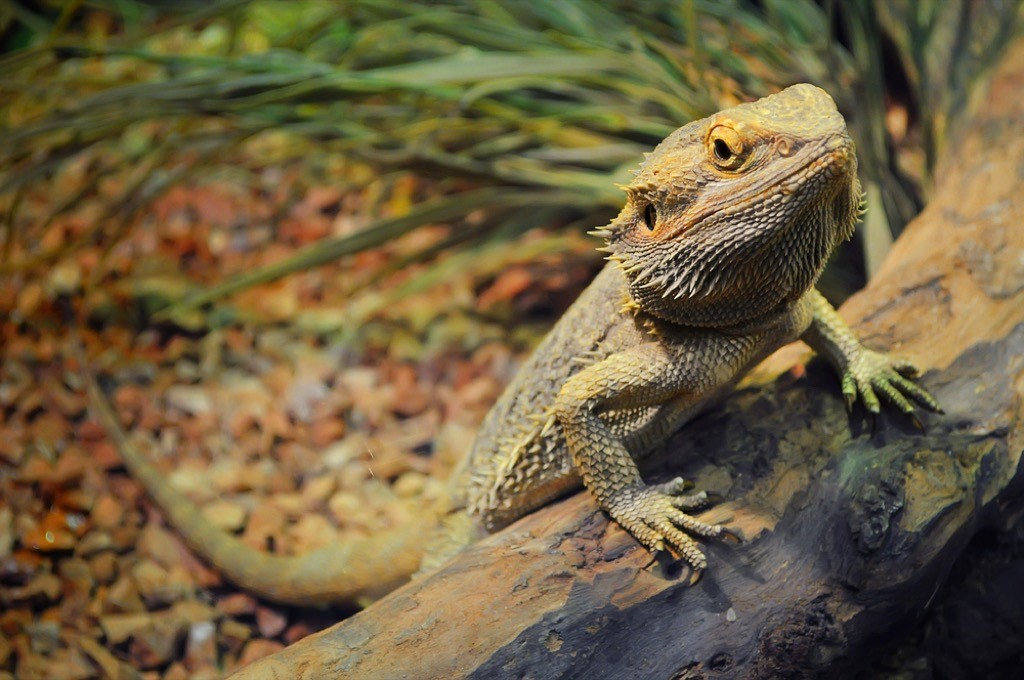
Bearded dragons make a lovely exotic pet. “They are named for the beard-like collar of spikes around their necks, which they display when startled or fearful,” says Burlington Emergency & Veterinary Specialists. “They are generally very docile in captivity and learn to enjoy being handled. They are also interesting to watch. Bearded dragons need a UVB light source, which can be purchased at a pet store. The light source must be shined through the screen top since glass filters out some UV rays. Use a light timer to keep a consistent 12 hours of light and 12 hours of dark schedule.Bearded dragons also need a constant humidity of 35 to 40%.”
RELATED: 20 Rattlesnakes Found in Man’s Garage—Here’s Where They Were Hiding.
5
Hedgehogs
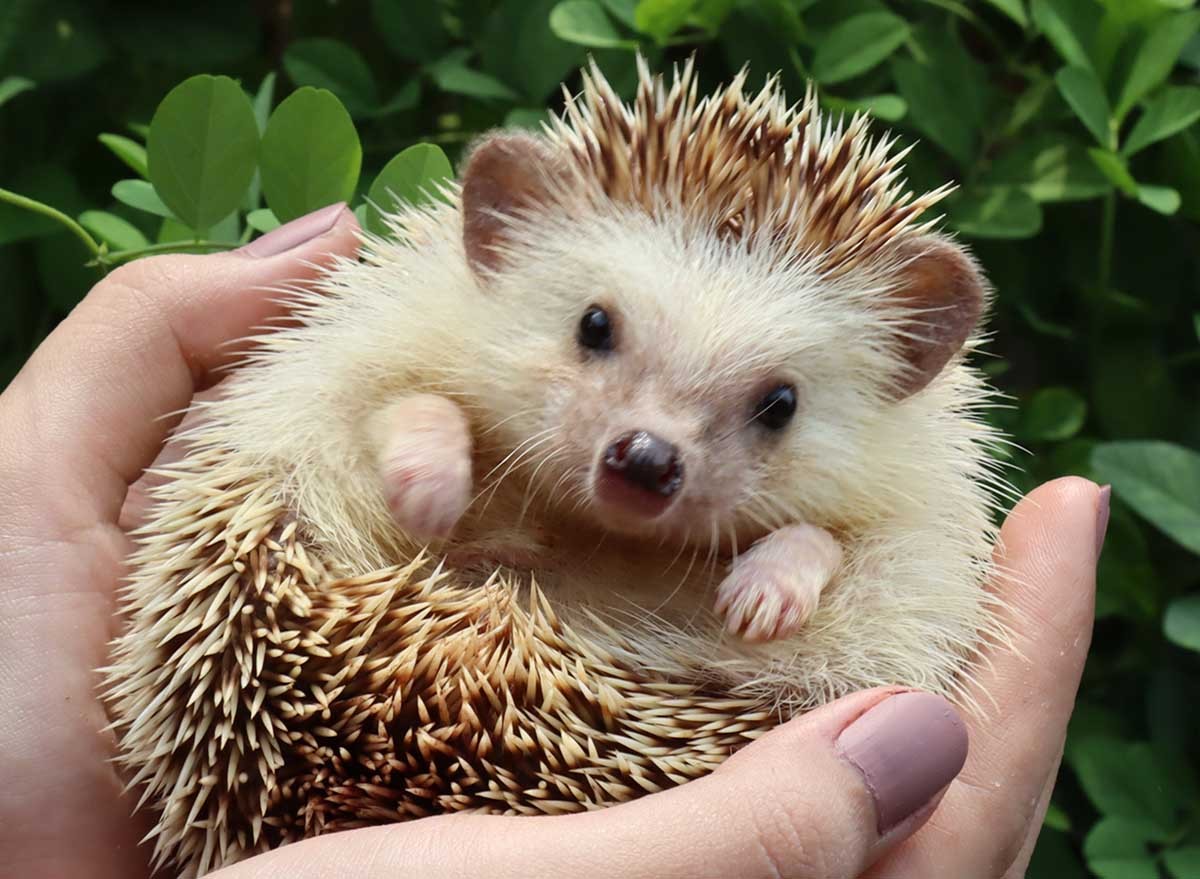
Those who like a challenge might appreciate a hedgehog for a pet. “The best hedgehog diet would be a specially formulated hedgehog or insectivore diet, of which there are many commercially available preparations,” says Dr. Krista Keller, a veterinarian at the University of Illinois Veterinary Teaching Hospital in Urbana. “This diet can be supplemented with treats such as mealworms, crickets, and fruits and vegetables.” These active nocturnal creatures need space to run and an exercise wheel.
6
Green-Cheeked Conure/Parakeet
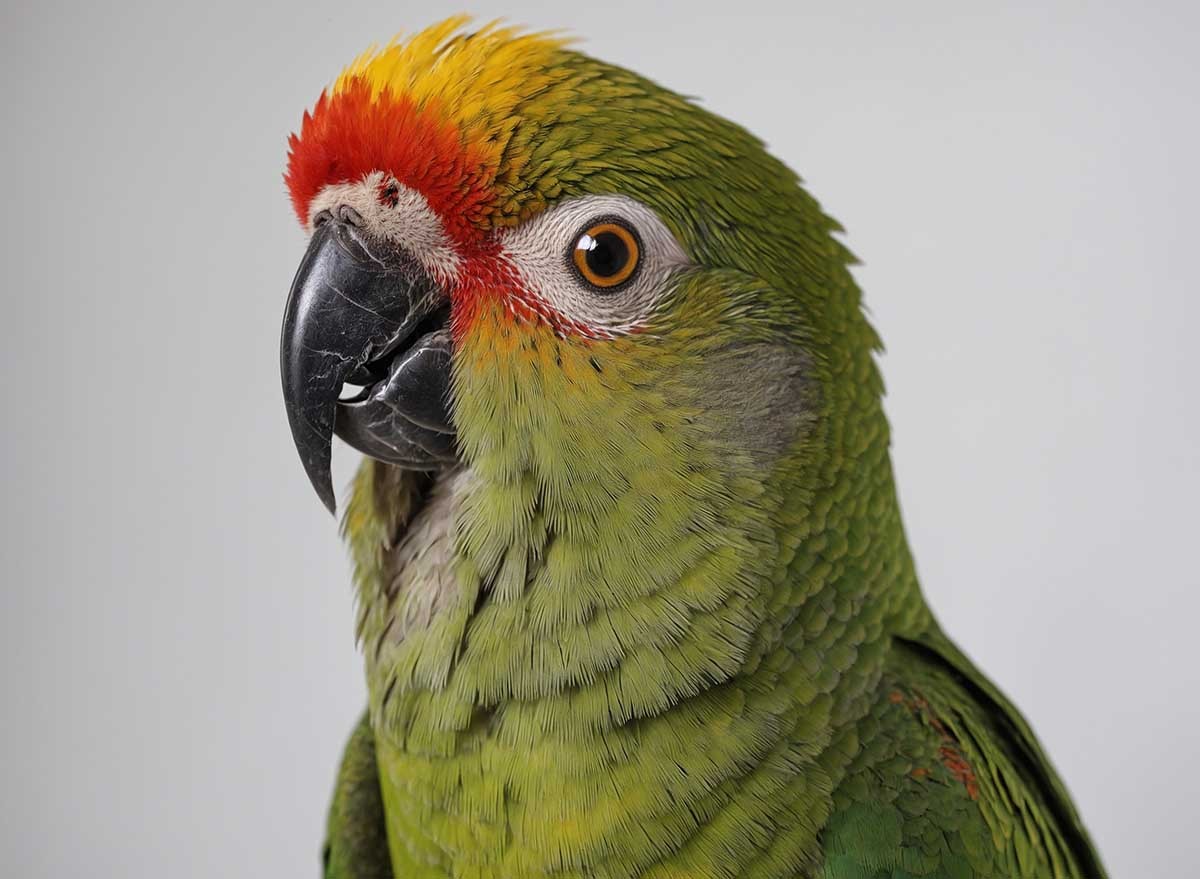
Bird-enthusiasts will love the green-cheeked conure, also known as the green-cheeked parakeet. “The dazzling colors, playful personality, and sweet temperament of the green-cheeked conure make it a great choice for a unique exotic pet,” says Burlington Emergency & Veterinary Specialists. “Bird lovers know that this small parrot is quieter than most, but they are also curious and affectionate, making them a good choice for bird beginners.”
7
Ball Pythons
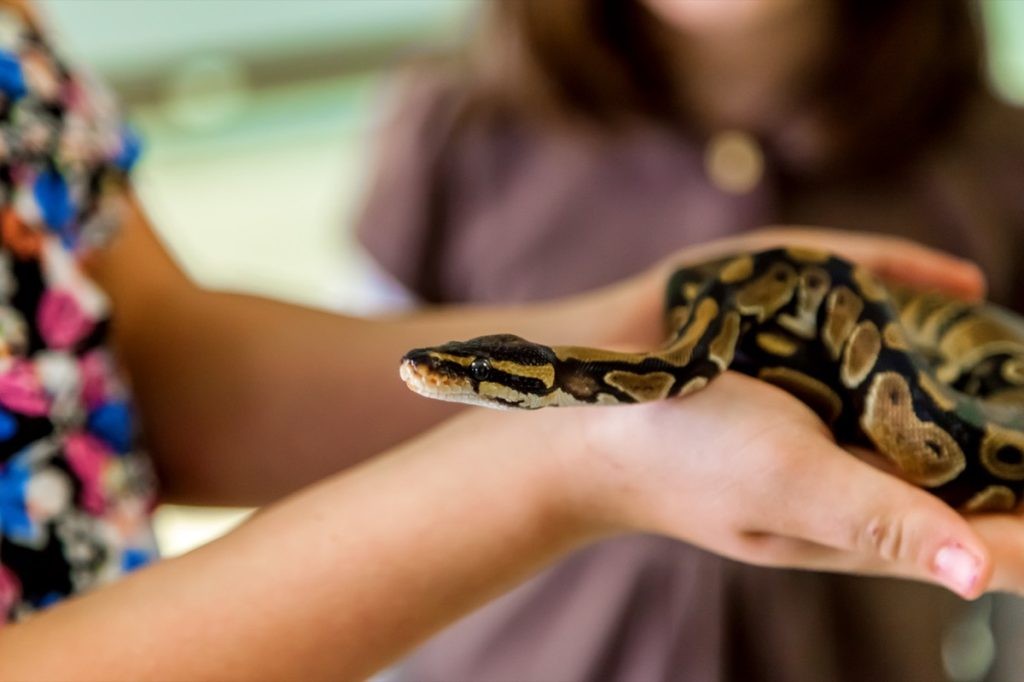
More adventurous pet-owners may enjoy the company of a ball python. “Ball pythons are one of the most docile and easy-to-care for pet snakes, making them an excellent choice for beginners,” says Legacy Animal Medical Center. “They are even easier to find and generally less expensive. Feeding ball pythons is considered one of the most difficult aspects of owning them. Their diet includes live or frozen mice and rats, and they occasionally refuse to eat. Some people may find the ball python’s tank requirements challenging because they require proper humidity as well as a basking and heating area.”